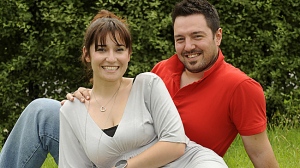Found this fantastic and very interesting article this morning, by Eric Barker, author of Barking Up The Wrong Tree at the New York Times and the Wall Street Journal. Want to improve your happiness and life satisfaction? Then check these stats out…
– Quinton
Having a better social life can be worth as much as an additional $131,232 a year in terms of life satisfaction:
There is substantial evidence in the psychology and sociology literature that social relationships promote happiness for the individual. This paper explores the use of shadow pricing method to estimate the monetary values of the satisfaction with life gained by an increase in the frequency of interaction with friends, relatives, and neighbours. Using the British Household Panel Survey, an increase in the level of social involvements is worth up to an extra £85,000 a year in terms of life satisfaction. Actual changes in income, on the other hand, buy very little happiness.
 A happy marriage is worth $105,000 a year: economists have been able to show using happiness surveys that marriage (compared to being single) is worth around £70,000 (or $105,000) a year for a representative person in Great Britain.
A happy marriage is worth $105,000 a year: economists have been able to show using happiness surveys that marriage (compared to being single) is worth around £70,000 (or $105,000) a year for a representative person in Great Britain.
Separation, on the other hand, is equivalent to around minus £170,000 (or $255,000) a year (see Clark and Oswald, 2002).
 Seeing friends and family regularly is worth $97,265: So, an individual who only sees his or her friends or relatives less than once a month to never at all would require around an extra £63,000 a year to be just as satisfied with life as an individual who sees his or her friends or relatives on most days.
Seeing friends and family regularly is worth $97,265: So, an individual who only sees his or her friends or relatives less than once a month to never at all would require around an extra £63,000 a year to be just as satisfied with life as an individual who sees his or her friends or relatives on most days.
By comparison, your health is worth $463,170: Improvement in health has one of the largest effects on life satisfaction; a move from having a very poor health to having an excellent health is worth around an extra £300,000 a year.
Unemployment takes a big happiness toll. You’d need as much as an extra $114,248 a year to make up for the life satisfaction you lose: There is a large psychic cost associated with joblessness. The cross-sectional estimates suggest that a pay package around £66,000 to £74,000 a year is required to compensate for being unemployed (compared to being employed full-time).
Divorce seems like a bargain, costing the equivalent of only $34,000 a year. Why so low? By the time people get the divorce they are happy to be moving on with their lives: This finding is consistent with the recent conclusion made by Gardner and Oswald (2006) that divorced couples tend to gain happiness from the dissolution of their marriage.
Death of a spouse, on the other hand, is equivalent to a drop in income of around $308,780 a year.
By comparison, your life is worth about $6 million to $9 million dollars, according to various government agencies:
– $9.1 million (Environmental Protection Agency)
– $7.9 million (Food and Drug Administration)
– $6 million (Transportation Department)
– $7 million (median value for prime aged workers)
What’s the best bet? Agreeing with Harvard happiness expert Daniel Gilbert, more time with friends and family, say the researchers: By allowing unobserved individual fixed effects to be factored out from the life satisfaction equation, an increase in the level of social interaction with friends and relatives is estimated to be worth up to an extra £85,000 a year. In terms of statistical significance, this is strikingly large. The estimated figure is even larger than that of getting married (which is worth approximately £50,000). It can compensate for nearly two-third in the loss of the happiness from going through a separation (minus £139,000) or unemployment (minus £143,000). It is also roughly nine times larger than the average real household income per capita in the dataset, which is around £9,800 a year. So if you want to play real life Monopoly (Life value = $6-9million):
– Health: +$463,170
– Better social life: +$131,232
– Marriage: +$105,000
– Seeing friends and family regularly: +$97,265
– Divorce: -$34,000
– Unemployment: -$114,248
– Separation: -$255,000
– Death of a spouse: -$308,780






 We all want to be better people. But rather than allowing that vague sense of ‘you’re doing it wrong’ niggle at you “like a splinter in your mind, driving you mad” (to quote Morpheus from The Matrix), stop ignoring it, and start to pay attention to it and ENGAGE with it. Change can be a scary thing, but if you are willing to consider yourself and where you are at honestly, you will open up the way to move forward. And the world that opens up to those courageous enough to embrace change, is AMAZING.
We all want to be better people. But rather than allowing that vague sense of ‘you’re doing it wrong’ niggle at you “like a splinter in your mind, driving you mad” (to quote Morpheus from The Matrix), stop ignoring it, and start to pay attention to it and ENGAGE with it. Change can be a scary thing, but if you are willing to consider yourself and where you are at honestly, you will open up the way to move forward. And the world that opens up to those courageous enough to embrace change, is AMAZING.




Recent Comments